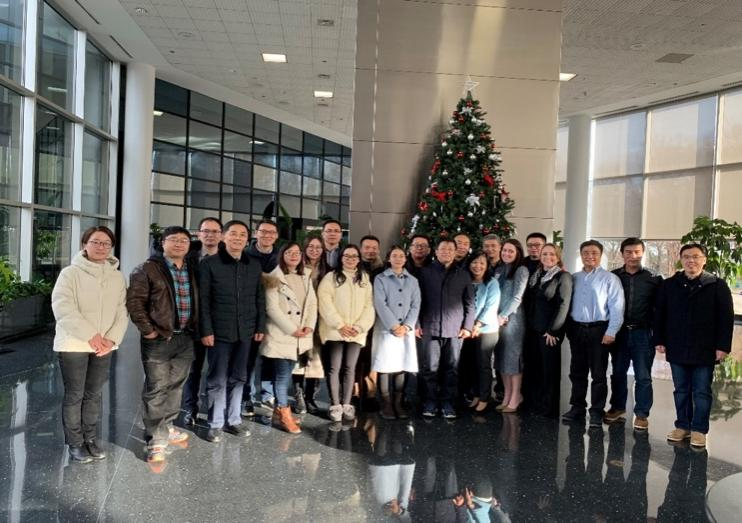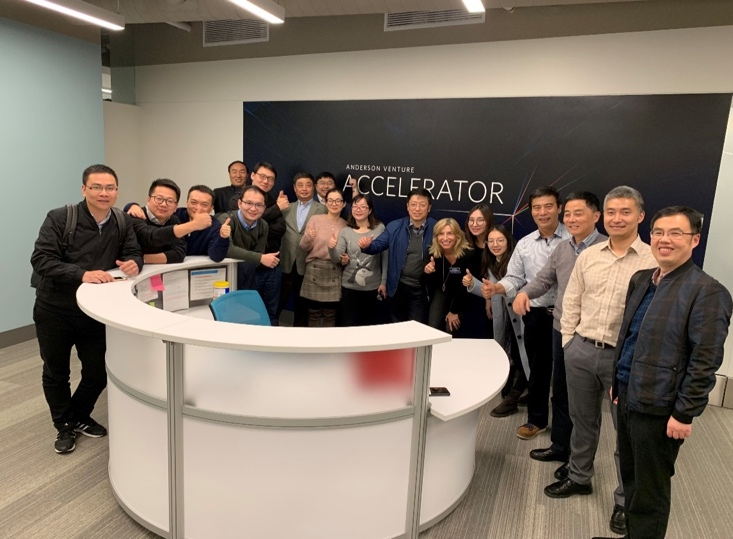| Position: Home > News Center > Company News |
| Study tour to Canada and USA. (November.2018) |
| Publish Time:2023-08-01 |
|
To enhance the management level of various types of incubators and new R & D institutions in our province, and to broaden cooperation channels with relevant institutions in the United States and Canada, JAISTC and Jiangsu Province Incubator Association jointly organized a delegation of managers from science and technology parks and incubators to visit the United States and Canada from November 24 to December 6, 2018. 1.Objects and contents being accesses. 1.1 Visit to IBM Innovation Space in Markham, Canada: CEO Dan Sinai provided an introduction to the space, which had a total investment of 54 million USD, primarily funded by the Ontario government and IBM. The space leveraged IBM's experts and infrastructure to attract startups. Its main mission was to provide technical guidance and resource services to startups and scale-ups with good ideas, connecting these enterprises with IBM's large clients and growing them into new clients of IBM. 1.2 MaRS in Canada: This is Canada's largest incubator, with a total area of 140,000 square meters, serving 1,300 startups and growth-oriented enterprises (not all physically located at MaRS, but benefiting from its network). It also hosted 150 mature companies, including subsidiaries of Facebook, PayPal, Johnson & Johnson, and others. MaRS focused on four main areas: clean technology, fintech, life sciences, and enterprise management. 1.3 Northern Virginia Technology Council (NVTC) in the United States: The one of largest technology associations in the US, serving over 1,000 companies. NVTC is a non-profit organization funded by membership fees and provides guidance and exchange platforms for startups to connect with the government for support and organize various activities, including lectures by industry leaders from companies like Facebook and Microsoft.
Northern Virginia Technology Council 1.4 Maryland Technology Enterprise Institute: Affiliated with the College of Engineering, it mainly focuses on entrepreneurship training and enterprise incubation to provide employment and tax revenue for Maryland state while also cultivating donors for the University of Maryland. The institute receives support from the Maryland government and trains undergraduates, graduates, community members, and even foreign students. After each training session, 10% of the students choose to start their own businesses. They also invite business advisors to class monthly, including entrepreneurs, technology transfer personnel, legal experts, government officials, and venture capital investors. 1.5 Visit to Plug and Play (P&P) in Silicon Valley: One of the top ten investment-oriented incubators in the United States, having incubated thousands of companies, including Google, Dropbox, PayPal, Logitech, and other unicorns . 1.6 Silicon Valley Innovation Center at San Jose State University: This center offers courses on innovation and entrepreneurship for the university's students, and they invite external entrepreneurs, venture capitalists, lawyers, and government officials to give lectures. They also organize student participation in entrepreneurship competitions held around the world, with winners receiving prizes and free space from P&P.
Anderson School of Management in UCLA 1.7 UCLA Anderson School of Management's Accelerator: It offers a 6-month entrepreneurship program, teaching courses on entrepreneurship, writing business plans, conducting market research, and more. The school also has a 400-member Entrepreneurship Association and an E-lab for exchange. 1.8 One Piece Work: The largest Chinese-founded incubator in the United States, with locations in Silicon Valley, San Francisco, Los Angeles, Seattle, Boston, and ten other cities. In less than two years since its founding, it has attracted over 200 companies and hosted over 500 events. The incubator connects resident companies with industry resources, collaborating with companies like IBM, Intel, and Baidu, helping numerous enterprises secure venture capital. 2. Summary and Takeaways: The visited incubators and institutions can be categorized into several types: government-funded comprehensive incubators like MaRS in Canada; privately-funded and operated incubators like Plug and Play and One Piece Work in the United States;non-profit incubators established by public universities such as the Maryland Technology Enterprise Institute, Silicon Valley Innovation Center, and UCLA Anderson's Accelerator. Common characteristics among these incubators include maintaining close ties with large enterprises, collaborating closely with venture capital firms, diversifying revenue streams, fostering an innovative ecosystem, and emphasizing both technological and business model innovation. These insights serve as valuable lessons for our own incubators to improve their effectiveness and impact. |

